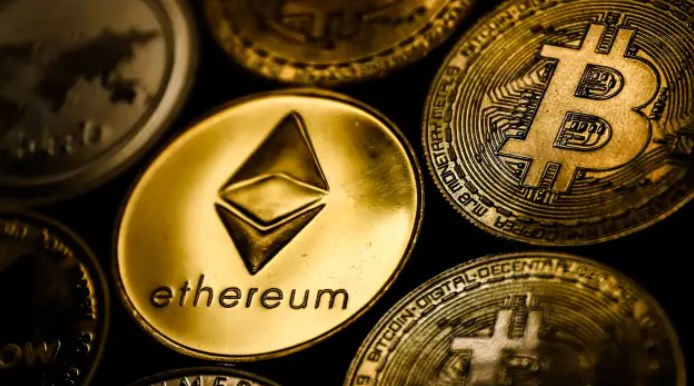What does virtual currency mean?
- 全网都在看Original
- 2024-04-15 14:22:06936browse
Virtual currency is a decentralized digital asset whose characteristics include: Decentralization: not controlled by a single entity. Security: Use encryption technology to ensure transactions are secure. Transparent: Transactions are recorded on a public blockchain. Anonymous: Users can trade anonymously. Limited Supply: Many virtual coins have a limited supply.

#What is a virtual currency?
Virtual currency, also known as cryptocurrency or digital currency, is a decentralized digital asset that does not rely on the endorsement of a central bank or government. They are based on complex encryption technology to ensure the security, transparency and anonymity of transactions.
Characteristics of virtual currency:
- Decentralization: does not rely on the control of a single entity, but is controlled by a decentralized computer network maintain.
- Security: Use encryption algorithms to prevent unauthorized access and double spending.
- Transparency: All transactions are recorded on a public blockchain for everyone to view.
- Anonymity: Users can use anonymous digital addresses to conduct transactions and protect personal information.
- Limited Supply: Many virtual coins have a limited supply to control inflation.
Types of virtual currencies:
- Bitcoin: The most well-known virtual currency with the largest market value.
- Ethereum: A platform that allows the development of decentralized applications.
- Altcoins: Other virtual coins inspired by Bitcoin.
- Stablecoin: A virtual currency designed to be pegged to a fiat currency such as the U.S. dollar or euro.
- Utility Tokens: Virtual coins used for specific services, such as payment of fees or access to content.
Applications of virtual currency:
- Store of value: Some people regard virtual currency as an investment or value Storage method.
- Payment: Some businesses and stores accept virtual coins as payment.
- Remittance: Virtual currency can provide a fast and low-cost method of cross-border remittance.
- Smart Contracts: Platforms such as Ethereum allow the development of smart contracts that can automatically execute when specific conditions are met.
- Decentralized Finance (DeFi): Some virtual coins are used in decentralized financial applications such as lending, trading, and insurance.
The above is the detailed content of What does virtual currency mean?. For more information, please follow other related articles on the PHP Chinese website!
Related articles
See more- What is the connection between SATS coin and Bitcoin?
- PayPal stablecoin PYUSD plans to enter the Aave lending protocol in the DeFi field
- Formal Digital Currency Platform Top Ten Digital Currency Trading Apps
- Is Ethereum worth holding for the long term? Is Ethereum worth investing in?
- Learn more about how to make money from stablecoin issuance in this article?

